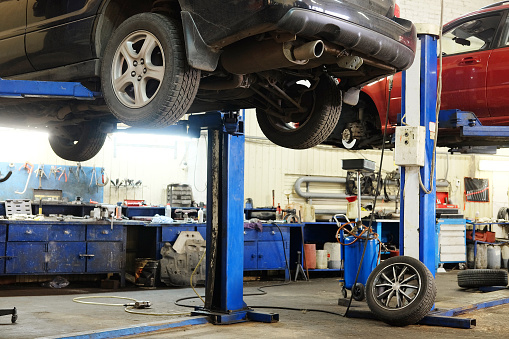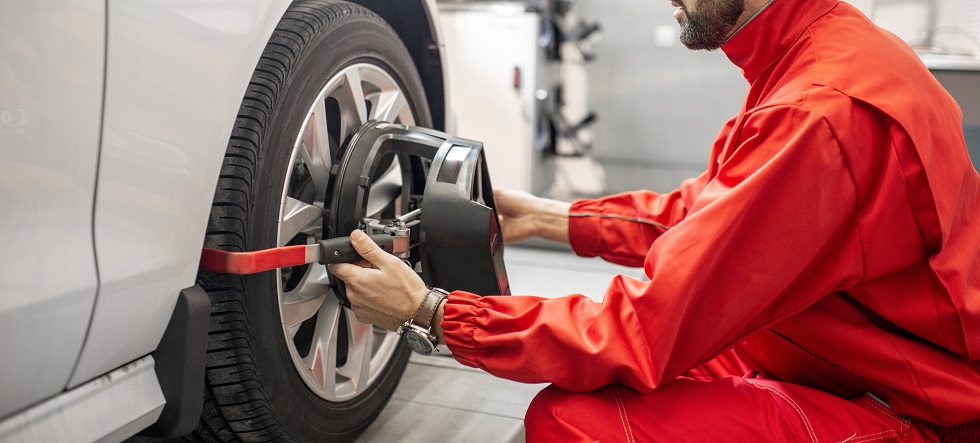All Categories
Featured

When it comes to automobile maintenance, the brakes are probably the most essential system for ensuring your safety and security. Routine brake examinations are essential to keeping your stopping system in leading problem.
- Why Brake Inspections Are Vital. Brakes are designed to use down with time, yet without routine assessments, you might not observe when they come to be much less effective. A defective brake system can cause serious crashes, enhanced repair service costs, and even the need to change various other vehicle parts.
Brake inspections not only help you capture potential concerns prior to they intensify, but they likewise permit far better stopping efficiency, boosted lorry lifespan, and improved security.
- Recognizing Indication for Brake Issues. While regular evaluations are essential, you don't have to wait till your vehicle's following browse through to the technician. Watch for these caution indications that might suggest it's time for an evaluation:
Uncommon Sounds: A high-pitched screech or grinding sound when using the brakes frequently indicates that the brake pads are used down or harmed. Soft or Mushy Brake Pedal: If the brake pedal really feels soft or mushy when pushed, there might be air or dampness in the brake lines, or the brake fluid might be reduced. Drawing to One Side: If the vehicle draws away while braking, it might indicate unequal brake pad wear or a hydraulic issue in the brake system. Resonance in the Wheel or Pedal: If you experience vibration or pulsation when braking, it might suggest warped rotors or uneven brake pad wear. Raised Stopping Range: If it takes longer than usual to bring your vehicle to a stop, it may be time to check the brake pads, liquid levels, or blades. If you notice any one of these indications, it's best to have your brakes examined instantly by a specialist.
- Secret Elements Checked Throughout a Brake Evaluation. During a brake inspection, a licensed mechanic will certainly analyze a number of vital components of the brake system to guarantee they're working properly. A few of one of the most vital parts to inspect consist of:
Brake Pads: These are the friction product that presses versus the brake rotor to decrease the lorry. In time, the brake pads put on down and require replacing. Brake Rotors: Blades are the steel discs that the brake pads clamp down on. They must be smooth and devoid of deep grooves or splits. Brake Liquid: The brake liquid moves the pressure from the pedal to the brakes. Low liquid degrees or old, polluted liquid can bring about bad stopping performance. Brake Lines: Brake lines carry fluid from the master cyndrical tube to the brake elements. They need to be checked for leakages, cracks, or damage. Brake Calipers: These secure the brake pads onto the rotors. They must be in good working order and totally free of leakages. Frequently checking these parts ensures your braking system operates smoothly and helps you prevent unsafe driving situations.
- Just how Frequently Should You Obtain Your Brakes Evaluated? The regularity of brake examinations relies on your driving behaviors and the sort of car you own. As a basic guideline, it's suggested to check your brakes a minimum of as soon as a year or every 12,000 miles. If you drive in hefty website traffic, frequently carry heavy loads, or drive on hilly terrain, even more constant examinations may be needed.
It's additionally a great idea to have your brakes inspected if you discover any of the indication pointed out previously, as this can protect against extra serious problems.
- The Cost of Ignoring Brake Inspections. Overlooking routine brake inspections can lead to major repercussions. Worn brake pads, harmed blades, or reduced brake fluid can cause your braking system to fall short when you need it most. In addition to the safety and security threats, overlooking brake upkeep can bring about costly repairs in the future.
As an example, if the brake pads are not replaced in time, the damages can include the blades, resulting in the need for rotor replacement-- a costly repair. By organizing routine brake examinations, you can stay clear of these costly repair work and keep your braking system in excellent condition for longer.

- What Occurs Throughout a Brake Assessment? A professional auto mechanic will certainly do a detailed assessment of your car's stopping system, consisting of examining for the following:
Brake Pad Density: Brake pads require to be replaced when they have worn down to a particular thickness. Rotor Condition: The technician will certainly check the rotors for indicators of wear, bending, or racking up. Brake Liquid Level: Low brake liquid can affect stopping efficiency. The technician will examine the liquid degree and replenish it if necessary. Brake Line Honesty: The brake lines will be inspected for any kind of leakages or splits that might endanger the brake system. When the inspection is total, the mechanic will certainly notify you of any type of necessary repair services or substitutes.
Final Thought: Keep Safe with Routine Brake Inspections. Your brakes are important to maintaining you and your travelers risk-free when traveling, so routine brake inspections need to never ever be neglected. By taking note of caution indicators, organizing routine brake checks, and attending to problems quickly, you can ensure that your brakes are constantly in top shape.
Do not wait up until your brakes stop working-- remain aggressive about brake maintenance. A little investment in brake inspections today can save you from pricey repair services and unsafe circumstances in the future.
Latest Posts
How Consistent Vehicle Maintenance at Montclare Auto Repair Reduces Costs
Uncover Montclare Auto Repair’s Most Popular Services and Why Drivers Trust Them
Discover Why Chicago Drivers Prefer Montclare Auto Repair for Trusted Service and Great Savings
More
Latest Posts
How Consistent Vehicle Maintenance at Montclare Auto Repair Reduces Costs
Uncover Montclare Auto Repair’s Most Popular Services and Why Drivers Trust Them
Discover Why Chicago Drivers Prefer Montclare Auto Repair for Trusted Service and Great Savings
